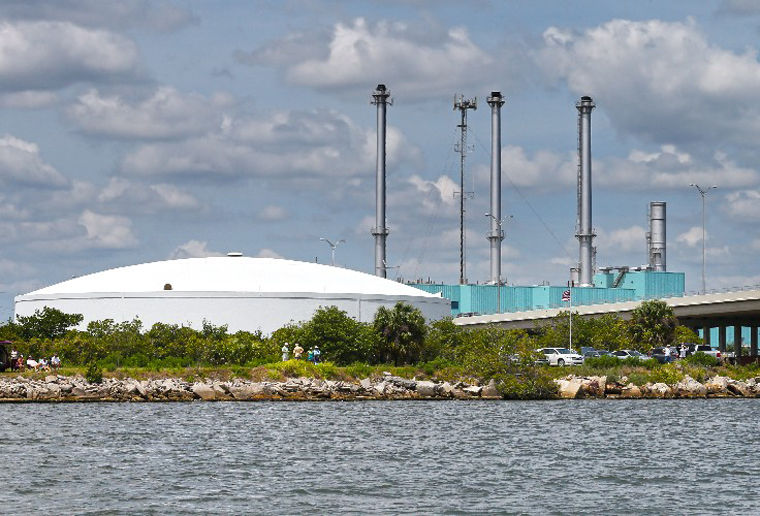Remember last fall’s Vero Beach election? Remember how opponents of the sale of Vero electric insisted that the question of where candidates stood on the sale was a non-issue?
That as far as the city was concerned, the sale was a “done deal?” That tying up the remaining loose ends was totally in the hands of Florida Power & Light?
Well, while sale opponents successfully peddled that story to low-information voters, none of it was true.
Wasn’t true then. Isn’t true now.
The sale of Vero electric will never be a done deal until someone figures out a way to extricate the city from its entanglements with the Florida Municipal Power Agency.
And that may be mission impossible.
By now, it should be clear to all that being a member of the FMPA is very much like belonging to a Mafia family: The bosses don’t take kindly to members leaving.
FPL’s effort to ransom Vero – by offering FMPA millions of dollars more than the price previously on the table to take over some of Vero’s power obligations – has been summarily rejected.
FPL naively thought if it came up with a big enough cash payoff, and tossed in some nuclear power options as well, FMPA would make the various entanglements that bind Vero to the co-op go away. A nice clean break.
To put it as kindly as possible, FMPA laughed.
We don’t want FPL’s money, the power co-op told Vero. We want you! Don’t send FPL over here waving its checkbook anymore. You are the only party we are going to talk to about family business.
(Almost sounds like that great movie line: “If we want your money, we’ll take your money.”)
And why wouldn’t FMPA rather talk only with Vero?
Having sweet-talked several generations of Vero city fathers into agreeing to the “All Requirements Project,” natural gas hedging, and crazed bond deals like the “Taylor Swaps,” the bosses of FMPA clearly figure they can keep Vero bound to the organization in perpetuity.
So now, we’re told there will be no further movement on the sale until Vero and FMPA – just Vero, mind you; no FPL lawyers or negotiators – work out a solution to the city’s “contingent liabilities,” its “stranded cost obligations,” and other FMPA entanglements that run until mid-century and beyond.
Is this starting to sound to you like there’s no “done deal” here? Not only did FMPA waive off FPL’s $52 million; it won’t even name a number of its own.
We are increasingly inclined to agree with the Indian River Shores Town Council – where council candle-power is a bit higher, and members last week expressed the view that “this deal clearly isn’t going to happen” because FMPA “clearly isn’t interested in the transaction.”
So where do we go from here?
For starters, let’s not waste any more money searching for a legislative solution.
Our state representative, Debbie Mayfield, has demonstrated in three terms in the legislature that she is incapable of gaining passage of anything more controversial than a bridge naming.
But we are equally opposed to just standing idly by – paying those outrageous electric bills month after month, year after year – while Vero engages in protracted talks with the FMPA godfathers.
Those talks are going to lead nowhere.
What do we do?
Alas, maybe it is time to reluctantly conclude there is not a single “we.”
Since Vero Beach 32963 began calling for Vero to get out of the electric business five years ago, our paper has advocated a solution that would be in the best interest of all our readers – residents of Vero, Indian River Shores, and unincorporated areas of South Beach and the mainland.
But those who live inside the Vero city limits – whose artificially low property taxes are subsidized by the electric rates of Vero utility customers living outside Vero – seem perfectly content to revert to a City Council that is no more useful than the ones that got Vero into all its foolhardy entanglements.
So perhaps it is finally time for the Shores Town Council and the County Commission to actively explore ways to extricate their constituents from Vero electric.
The Shores, where residents account for about 11 percent of Vero Electric’s account base, already seems to be moving in this direction.
At its March meeting, the Shores council directed Mayor Tom Cadden and key staff to meet with an attorney who specializes in utilities and who practices before the Florida Public Service Commission to determine what the Town’s options might be to carve its residents out of the Vero system.
Our belief continues to be that any solution that rescues non-city customers from Vero electric – and leaves Vero still in the clutches of the bosses at FMPA – is a formula that ultimately will lead the city down a painful path to municipal bankruptcy.
But if Vero insists on continuing to elect low-wattage council members, nostalgic for the Vero of yesteryear, set on continuing to perpetuate the mistakes of Vero forefathers, there may be nothing we can say to save the city from itself.

